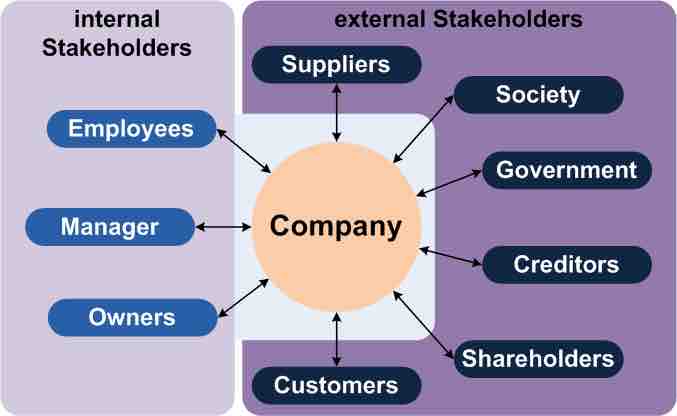A corporate stakeholder is an individual or group who can affect or be affected by the actions of a business. The stakeholder concept was first used in a 1963 internal memorandum at the Stanford Research Institute. It defined stakeholders as "those groups without whose support the organization would cease to exist. "
In the last decades of the 20th century, the word "stakeholder" has become more commonly used to refer to a person or group that has a legitimate interest in a project or entity. In discussing the decision-making process for institutions—including large business corporations, government agencies, and non-profit organizations -- the concept has been broadened to include everyone with an interest (or "stake") in what the entity does.
Internal stakeholders are entities within a business (e.g., employees, managers, the board of directors, investors). Employees want to earn money and stay employed. Owners are interested in maximizing the profit the business makes. Investors are concerned about earning income from their investment.

Stakeholders
The picture shows the typical stakeholders of a company. The stakeholders are divided in internal and external stakeholders.
External stakeholders are entities not within a business itself but who care about or are affected by its performance (e.g., consumers, regulators, investors, suppliers). The government wants the business to pay taxes, employ more people, follow laws, and truthfully report its financial conditions. Customers want the business to provide high-quality goods or services at low cost. Suppliers want the business to continue to purchase from them. Creditors want to be repaid on time and in full. The community wants the business to contribute positively to its local environment and population.